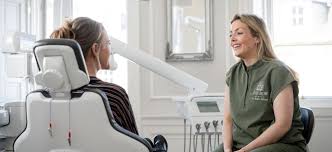Having oral surgery can feel like a major milestone, but the recovery period that follows is just as valuable for your overall health and healing. From managing swelling and discomfort to knowing what foods to eat (and avoid), understanding the recovery process helps you feel prepared and confident. Let’s explore what to expect after dental surgery.
Immediate Post-Surgery Effects
Pain, swelling, and bleeding are normal responses after tooth and jaw surgery. These symptoms occur because your body starts the healing process immediately after the procedure. The discomfort may initially feel intense, but it gradually decreases over the following days.
Swelling often becomes most noticeable around the second day after your procedure. Your face may look puffy, especially around the surgical site. This swelling is your body’s natural response to tissue trauma. The swelling usually begins to subside after the second or third day.
Bleeding is also expected immediately after oral surgery. You may notice blood-tinged saliva or slight oozing from the surgical site. This bleeding should be light and gradually stop within the first day or two. Heavy bleeding that doesn’t slow down after applying gentle pressure needs immediate attention from your dental team.
Managing Pain and Promoting Healing
Taking prescribed medications as directed helps control pain and supports proper healing. Your dentist may recommend over-the-counter pain relievers or prescribe stronger medication, depending on the nature of your procedure. Never skip doses or take more than recommended, as this affects how well the medication works and may cause side effects.
Rest plays a key role in your recovery process. Your body needs energy to heal the surgical site, so avoid strenuous activities for at least the first few days after surgery. Keep your head elevated when lying down to reduce swelling and promote better blood flow. Also, apply ice packs to the outside of your face for some minutes during the first day to minimize swelling.
Oral Hygiene and Activity Restrictions
Keeping your mouth clean after oral surgery requires special care. Avoid brushing directly over the surgical site for the first day or two, but continue gentle brushing of your other teeth. Your dentist may recommend a special mouth rinse or salt water solution to help keep the area clean without disturbing the healing tissue.
Physical activities should be limited during the first week of recovery. Avoid heavy lifting, intense exercise, or activities that might increase blood pressure, as these may cause bleeding or delay healing. Return to normal activities gradually as you feel better and your dentist gives approval.
When to Contact Your Dentist or Surgeon
Certain symptoms require immediate attention from your dental team. Contact your dentist if bleeding doesn’t slow down after applying gentle pressure or if you experience heavy bleeding that soaks through gauze quickly. Also, call your dentist if the pain worsens instead of improving after the first few days.
Signs of infection include fever, increased swelling, or pus drainage from the surgical site. These symptoms indicate that bacteria may have entered the wound, and professional treatment is needed. Unusual swelling that spreads to other areas of your face or neck also requires prompt evaluation. Numbness or tingling that persists beyond what your dentist explained as normal may indicate nerve involvement. While some temporary numbness is expected after certain procedures, lasting changes in sensation should be evaluated promptly.
Schedule an Oral Surgery Appointment
Recovery from oral surgery follows a predictable pattern when you follow your dentist’s instructions carefully. Most people heal within one to two weeks, though complex procedures may take longer. Managing pain with prescribed medications, getting adequate rest, and maintaining proper oral hygiene help make sure your recovery goes smoothly. To address your dental surgery needs, schedule an appointment with a dentist for your oral surgery consultation and learn more about treatment options.
- Choosing the Right Plastic Surgeon for Your Cosmetic Procedure
- Understanding Different Types of Laser Treatments for Skin Rejuvenation
- Why a Family Dentist is Key for Maintaining Oral Health
- The Benefits of Regular Visits to a Wellness Spa
- Exploring the Emotional and Psychological Triggers of Eating Disorders


Leave a Reply